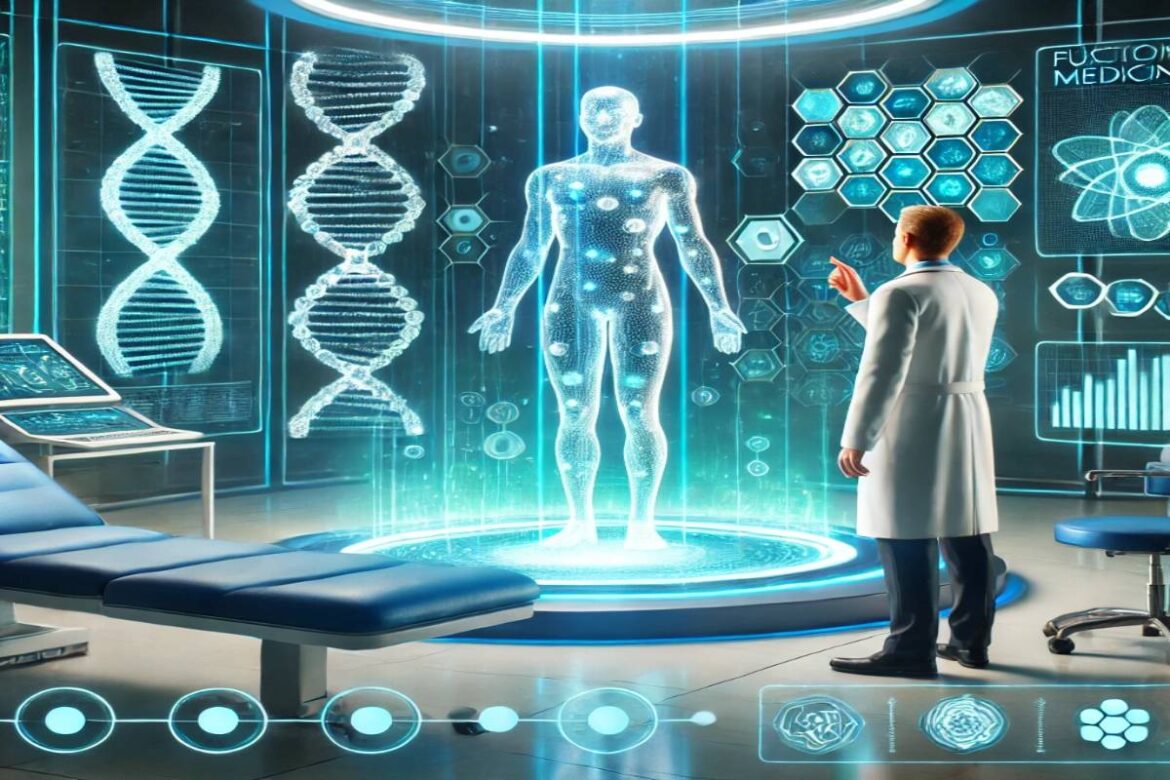Introduction
Anti-aging has long been associated with topical creams, cosmetic procedures, and surgical enhancements. But these surface-level solutions often fail to address the internal imbalances that contribute to visible signs of aging—fatigue, dull skin, cognitive decline, and weight gain.
In recent years, functional medicine has emerged as a science-backed, holistic alternative. Rather than treating symptoms in isolation, functional medicine identifies and corrects the underlying causes of aging. This revolutionary approach not only supports external appearance but also promotes long-term vitality and disease prevention.
This article explores how functional medicine is transforming the anti-aging space by focusing on hormonal balance, gut health, detoxification, personalized nutrition, and lifestyle optimization.
What Is Functional Medicine?
Functional medicine is a patient-centered, systems-based approach to healthcare that seeks to identify and treat the root causes of chronic conditions. Rather than relying solely on pharmaceuticals to suppress symptoms, functional medicine uses diagnostic testing, nutritional therapy, lifestyle changes, and sometimes bioidentical hormone replacement to support optimal health.
According to the Institute for Functional Medicine, this approach considers genetic, environmental, and lifestyle factors that influence health outcomes. It’s particularly effective in addressing age-related issues because it treats the body as an interconnected system rather than isolated parts.
Understanding Aging from the Inside Out
Aging is a complex biological process influenced by a range of internal and external factors. While wrinkles and gray hair are the visible signs, the real drivers of aging occur beneath the surface.
Key Biological Changes Associated with Aging:
- Hormonal decline (testosterone, estrogen, progesterone, DHEA)
- Mitochondrial dysfunction, leading to low energy
- Chronic inflammation (“inflammaging”)
- Oxidative stress from free radicals damaging cells
- Reduced detoxification capabilities in the liver
- Impaired gut health, affecting nutrient absorption and immunity
Conventional treatments often fail to reverse or slow these processes. Functional medicine, however, aims to optimize the body’s internal environment, allowing patients to look and feel younger from the inside out.
How Functional Medicine Tackles Aging Holistically
1. Hormonal Balancing for Youthful Vitality
One of the most profound changes with aging is hormonal decline. Functional medicine practitioners assess hormone levels through advanced testing and may recommend:
- Bioidentical hormone replacement therapy (BHRT)
- Nutritional strategies to support adrenal and thyroid health
- Stress management to stabilize cortisol levels
Balanced hormones contribute to:
- Increased energy and libido
- Improved skin elasticity and hydration
- Better mood, sleep, and metabolism
For example, women in perimenopause or menopause often report significant improvements in skin tone, hair thickness, and sleep when estrogen and progesterone levels are balanced appropriately.
2. Gut Health: The Anti-Aging Gateway
A healthy gut is central to aging well. Poor digestion, food sensitivities, and leaky gut syndrome can all accelerate the aging process.
Functional medicine addresses this through:
- Comprehensive stool and microbiome testing
- Targeted probiotics, prebiotics, and digestive enzymes
- Elimination diets to identify triggers
Improved gut function leads to:
- Enhanced nutrient absorption (especially vitamins A, D, E, and K)
- Reduced systemic inflammation
- Brighter, clearer skin and stronger immunity
Many patients treated at Natural Med Doc report reduced bloating, better mental clarity, and glowing skin after implementing gut repair protocols.
3. Detoxification and Cellular Health
The body’s ability to detoxify naturally declines with age. Functional medicine supports liver function and cellular repair through:
- Antioxidant-rich diets (leafy greens, cruciferous vegetables, berries)
- Nutraceuticals like glutathione, N-acetylcysteine (NAC), and milk thistle
- Saunas and sweating therapies to eliminate toxins through the skin
Patients who commit to a proper detox protocol often experience:
- Clearer skin
- Increased energy
- Improved cognitive performance
4. Personalized Nutrition and Anti-Aging Supplements
There is no one-size-fits-all diet for aging well. Functional practitioners tailor nutritional plans based on:
- Micronutrient testing
- Inflammatory markers (like CRP)
- Blood sugar regulation
Common supplements used in anti-aging protocols include:
- CoQ10 for mitochondrial health
- Omega-3 fatty acids to reduce inflammation
- Vitamin D3 and K2 for bone and heart health
- Collagen and hyaluronic acid for skin elasticity
These targeted interventions help clients reduce wrinkles, stabilize mood, and support joint mobility.
5. Managing Stress and Sleep: The Silent Agers
Chronic stress and poor sleep accelerate aging by increasing cortisol and impairing cellular repair. Functional medicine helps rebalance the nervous system using:
- Adaptogenic herbs (e.g., ashwagandha, rhodiola)
- Sleep hygiene protocols
- Cortisol testing and adrenal support
Studies have shown that consistent, quality sleep slows telomere shortening, a key marker of aging (Source: National Institutes of Health, 2017).
Functional Medicine vs. Traditional Anti-Aging Approaches
| Approach | Traditional Anti-Aging | Functional Medicine |
| Focus | Surface-level symptoms (wrinkles, fatigue) | Root-cause resolution (hormones, inflammation) |
| Treatment Methods | Botox, fillers, laser treatments | Nutrition, detox, hormone therapy, lifestyle |
| Duration of Results | Short-term fixes | Long-lasting rejuvenation |
| Personalization | One-size-fits-all | Tailored to individual biology |
Real-World Example: Restoring Youth from Within
Consider a 52-year-old woman experiencing fatigue, dry skin, and stubborn weight gain. Rather than prescribing stimulants or anti-aging creams, her functional medicine doctor orders a full hormone panel, food sensitivity test, and gut analysis.
Within 3 months of starting BHRT, adjusting her diet, and implementing a stress-reduction plan, she reports:
- Restored energy and libido
- Significant improvement in skin tone
- Better sleep and weight loss without drastic dieting
Such outcomes are increasingly common as patients adopt a whole-body approach to aging.
Conclusion
The future of anti-aging lies not in chasing youth externally but in restoring vitality internally. Functional medicine offers a comprehensive, sustainable path to aging well, focusing on optimizing the body’s systems to enhance both health and appearance.
Whether you’re struggling with fatigue, hormone imbalances, or premature aging, working with a licensed functional medicine provider can unlock personalized solutions tailored to your body’s needs.
Aging is inevitable—but how you age is a choice. With the right approach, you can look and feel your best at any stage of life.


